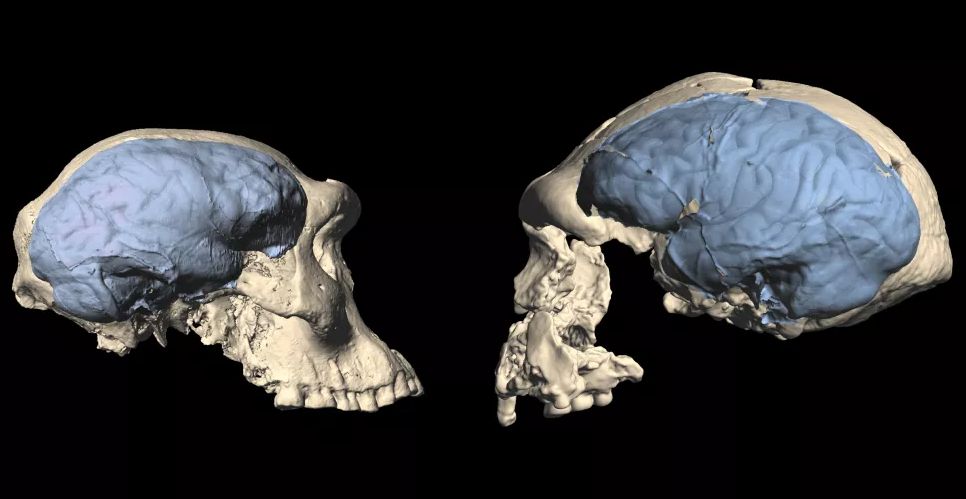Early humans still had great ape-like brains...
Early humans still had great ape-like brains, according to a new study that found modern humans evolved to have our "advanced" thinking organs relatively recently, between 1.7 million and 1.5 million years ago. This means that the unique brain of modern humans (Homo) developed more than 1 million years after the Homo genus arose, and after the first Homo erectus migrated out of Africa, according to the study, published online Thursday (April 7) in the journal Science.
The finding overturns a previously held view that humans' frontal lobe — the part of the brain that processes complex cognitive tasks, including social thought, tool use and language — developed at the transition from Australopithecus to Homo, which happened roughly 2.8 million to 2.5 million years ago, the researchers said.
Because brains are made of soft tissues that don't fossilize, the researchers instead examined fossilized endocasts, or the skull region that housed the brain, to determine how the organ changed over time. To do this, the scientists compared the structure of "primitive" or "early" brains with that of a modern human brain, looking at the endocasts of human's closest living relatives, the great apes ... along with the endocasts of 110 modern humans. Then, they analyzed the endocasts of nearly 40 ancient human skulls ... and determined how "primitive" or advanced their brains likely were by comparing them with the great ape and modern human endocasts.
After comparing the fossil endocasts with those of the great apes and modern humans, the team's analyses revealed that the earliest members of Homo had a brain with a great ape-like frontal lobe. "The earliest populations of our genus Homo had quite primitive ape-like brains, like their ancestors, the australopithecines," Ponce de León said. This includes fossils associated with Homo habilis and early Homo erectus, the researchers said.
https://www.livescience.com/human-brain-evolution.html

